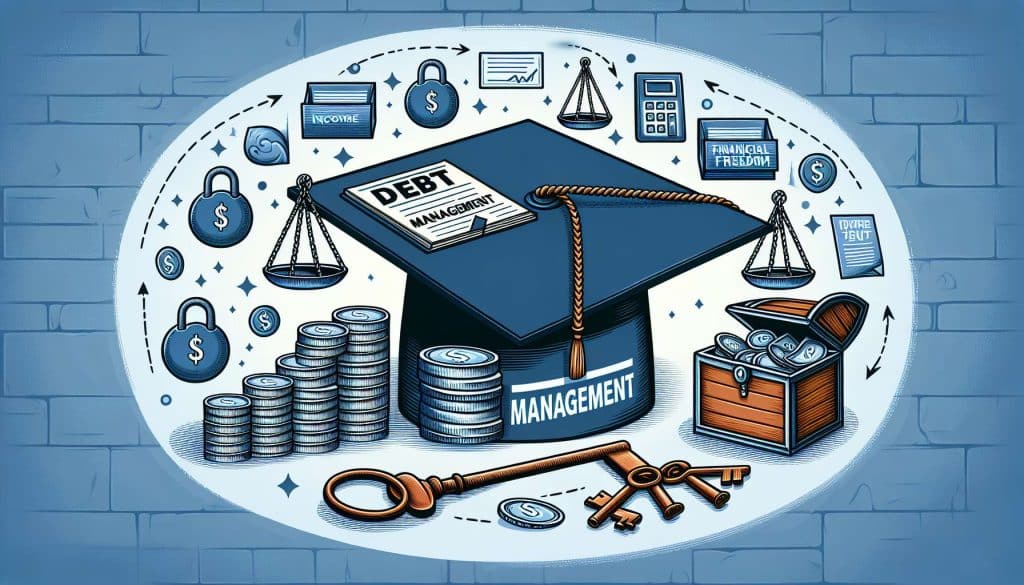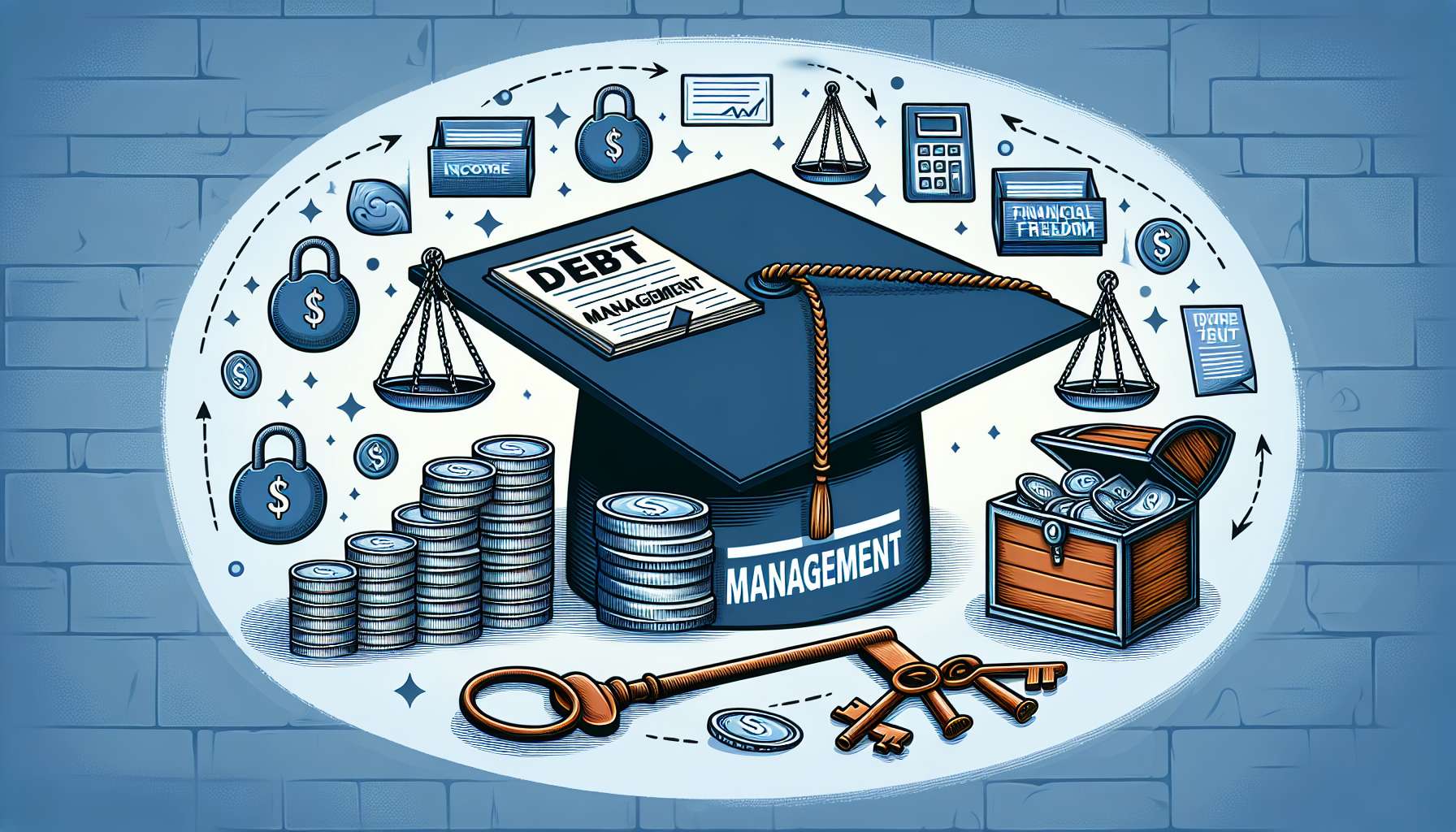Mastering Debt Management: Unlock Strategies for Achieving Financial Freedom

Anúncios

Achieving Financial Freedom Through Debt Management
Managing personal finances is an essential skill in today’s rapidly evolving world. Debt is a prevalent component of many individuals’ financial lives, often stemming from mortgages, student loans, or credit card balances. While debt can serve as a useful financial tool, excessive debt accumulation causes stress and obstructs financial independence. Thus, mastering debt management is crucial for regaining financial control and securing a stable, prosperous future.
The art of debt management involves making strategic decisions to handle outstanding debts efficiently. This approach requires careful budgeting, prioritization, and informed repayment strategies to minimize debt and enhance financial stability. Ensuring a good credit score and reducing stress are vital benefits, along with the eradication of financial obstacles. Embracing effective debt management techniques is key to unlocking doors to financial freedom.
Understanding why debt management is essential involves realizing how it promotes a sustainable financial lifestyle. Substantial interest payments stretch finances, deteriorating savings and income. Furthermore, poor debt management tarnishes credit scores, essential for future investments. Therefore, recognizing and implementing effective debt management methodologies is vital for financial well-being and future planning.
Anúncios
Steps to Effective Debt Management
To begin managing debt effectively, assess your current debt situation. Gather comprehensive debt details: types, interest rates, total amounts, and minimum payments. This foundation provides clarity and assists in creating a personalized repayment plan.
Prioritizing debts is essential. Arrange them methodically, focusing on higher interest debts first. Known as the avalanche method, this strategy seeks to reduce interest payments long-term. Alternatively, the snowball method targets smaller debts, fostering early successes and motivating subsequent debt repayment efforts.
Crafting a realistic personal budget is another foundational step in debt management. Start by evaluating monthly income and expenses, differentiating between essential and optional expenditures. A structured budget provides insight into financial behavior and enables necessary adjustments to enhance debt repayment capabilities.
Anúncios
The 50/30/20 budgeting rule is an effective strategy to streamline your finances. Allocate 50% to necessities, 30% to discretionary spending, and 20% to savings and debt repayment. Tweaking this framework to prioritize debt reduction can accelerate financial recovery.
Expanding income streams is another viable way to tackle debt. Engaging in side hustles or freelance work offers additional monetary resources dedicated solely to debt payments, ensuring a faster debt-free journey. Don’t overlook existing employment—negotiating salary enhancements can contribute significantly to debt reduction.
Debt Management Strategies: Key Characteristics and Considerations
- Adopt the debt avalanche or snowball strategy based on financial goals.
- Emphasize budgeting using the 50/30/20 rule as a guide.
- Identify and eliminate unnecessary expenses to free up funds.
- Explore additional income opportunities, such as side hustles or promotions.
- Consider debt consolidation or refinancing to minimize interest rates.
Benefits of Effective Debt Management
Successful debt management provides numerous benefits, including stress reduction and improved financial security. Lowering interest payments directly impacts disposable income positively, enabling better financial flexibility. Furthermore, maintaining a healthy credit score facilitates future investment opportunities.
By following structured repayment plans and disciplined budgeting, individuals can swiftly navigate towards financial independence. Creating a sustainable financial lifestyle and securing a solid financial future is achievable with effective debt management.
Addressing debt responsibly preserves savings while providing additional funding for future pursuits. A strategic approach ensures financial resilience and mitigates impacts from unforeseen circumstances.
Moreover, adept debt management fosters a sense of empowerment over one’s financial situation. With enhanced understanding and control, individuals experience increased confidence and readiness for future financial explorations.
Ultimately, effective debt management is not merely a temporary solution but a lifelong skill influencing financial prosperity. Mastering this art is a commitment to continuous improvement, providing long-term financial stability and peace of mind.





